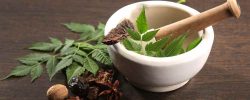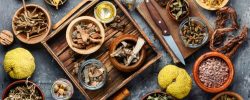Ayurveda and Traditional Chinese Medicine (TCM) are ancient healing systems that have been practiced for thousands of years. Both systems offer holistic approaches to health and well-being, focusing on the interconnectedness of the mind, body, and spirit.
What Is Ayurveda
Ayurveda, originating in India, is a comprehensive system of medicine that emphasizes balance and harmony in the body. It is based on the belief that health is achieved through a balance of three doshas: Vata, Pitta, and Kapha. These doshas represent different energy types that influence physical, mental, and emotional well-being.
Key Principles of Ayurveda:
- Holistic Approach: Ayurveda considers the individual as a whole, addressing physical, mental, and spiritual health.
- Dietary Guidelines: Ayurveda emphasizes a balanced diet tailored to individual dosha types.
- Herbal Remedies: Ayurvedic herbs are used to restore balance and promote healing.
- Lifestyle Practices: Yoga, meditation, and specific daily routines are essential components of Ayurvedic practice.
What Is Traditional Chinese Medicine (TCM)
TCM, originating in China, is another ancient healing system that focuses on the flow of qi (life energy) through the body’s meridians. It aims to restore balance and harmony to the body’s energy system.
Key Principles of TCM:
- Yin and Yang: TCM is based on the concept of Yin and Yang, representing opposing forces that must be balanced.
- Five Elements: The five elements (wood, fire, earth, metal, and water) are believed to influence the body’s energy flow.
- Acupuncture and Moxibustion: These techniques involve the insertion of needles or the application of heat to specific points on the body to stimulate energy flow.
- Herbal Medicine: TCM uses a wide range of herbs to treat various ailments.
Similarities Between Ayurveda and TCM
- Holistic Approach: Both systems emphasize a holistic approach to health, considering the mind, body, and spirit.
- Balance and Harmony: Both systems aim to restore balance and harmony to the body’s energy system.
- Natural Remedies: Both systems rely on natural remedies, including herbs, dietary modifications, and lifestyle practices.
- Individualized Treatment: Both systems tailor treatments to the individual’s unique constitution and imbalances.
Differences Between Ayurveda and TCM
- Philosophical Foundations: Ayurveda is rooted in Vedic philosophy, while TCM is based on Taoist philosophy.
- Diagnostic Methods: Ayurveda often uses pulse diagnosis, tongue examination, and astrological considerations, while TCM relies on pulse diagnosis, tongue examination, and analysis of the patient’s energy flow through meridians.
- Therapeutic Techniques: Ayurveda employs a wide range of therapies, including herbal medicine, panchakarma (detoxification), yoga, and meditation. TCM utilizes acupuncture, moxibustion, cupping, herbal medicine, and dietary therapy.
How Ayurveda and TCM Can Help with Winter Blues
Both Ayurveda and TCM offer effective strategies to combat the Winter Blues:
Ayurveda:
- Dietary Adjustments: Consuming warm, cooked foods that are easy to digest can help balance Vata, which can be aggravated during winter.
- Herbal Remedies: Certain herbs like Ashwagandha and Turmeric can help reduce stress and anxiety
- Yoga and Meditation: Regular practice can help alleviate stress, improve mood, and promote relaxation.
TCM:
- Acupuncture: Stimulating specific acupoints can help regulate the flow of qi and improve moods.Herbal Medicine: Herbs like Ginseng and Schisandra can boost energy and alleviate fatigue.Dietary Therapy: Consuming warming foods like soups and stews can help nourish the body and minds.
Recipes to Support Winter Wellness
Here are a few simple recipes inspired by Ayurvedic and TCM principles:
Ayurvedic Golden Milk:
- Ingredients:
- 1 cup of milk (dairy or plant-based)1 teaspoon turmeric powder
- 1/2 teaspoon ginger powder
- 1/4 teaspoon cinnamon powder
- A pinch of black pepper
- Honey or maple syrup to taste
- Instructions:
- Heat the milk in a saucepan.
- Add the turmeric, ginger, cinnamon, and black pepper.
- Simmer for 5-10 minutes.
- Strain the milk and sweeten with honey or maple syrup.
TCM Ginger Tea:
- Ingredients:
- 1 inch piece of fresh ginger, sliced
- 2 cups of water
- Honey or lemon to taste
- Instructions:
- Boil the water and add the ginger slices.
- Simmer for 10-15 minutes.
- Strain the tea and add honey or lemon to taste.
By incorporating these practices and recipes into your daily routine, you can harness the wisdom of Ayurveda and TCM to improve your overall well-being and alleviate the symptoms of the winter blues.



